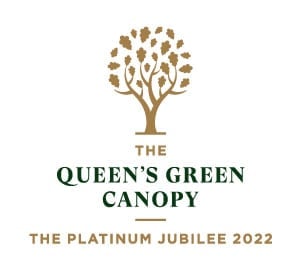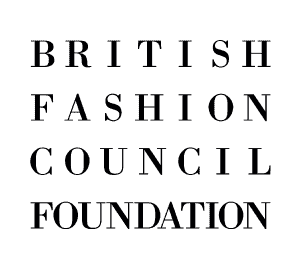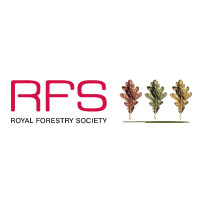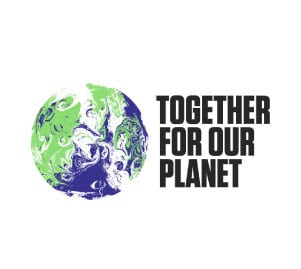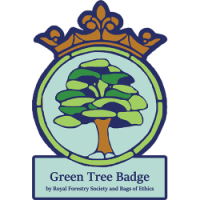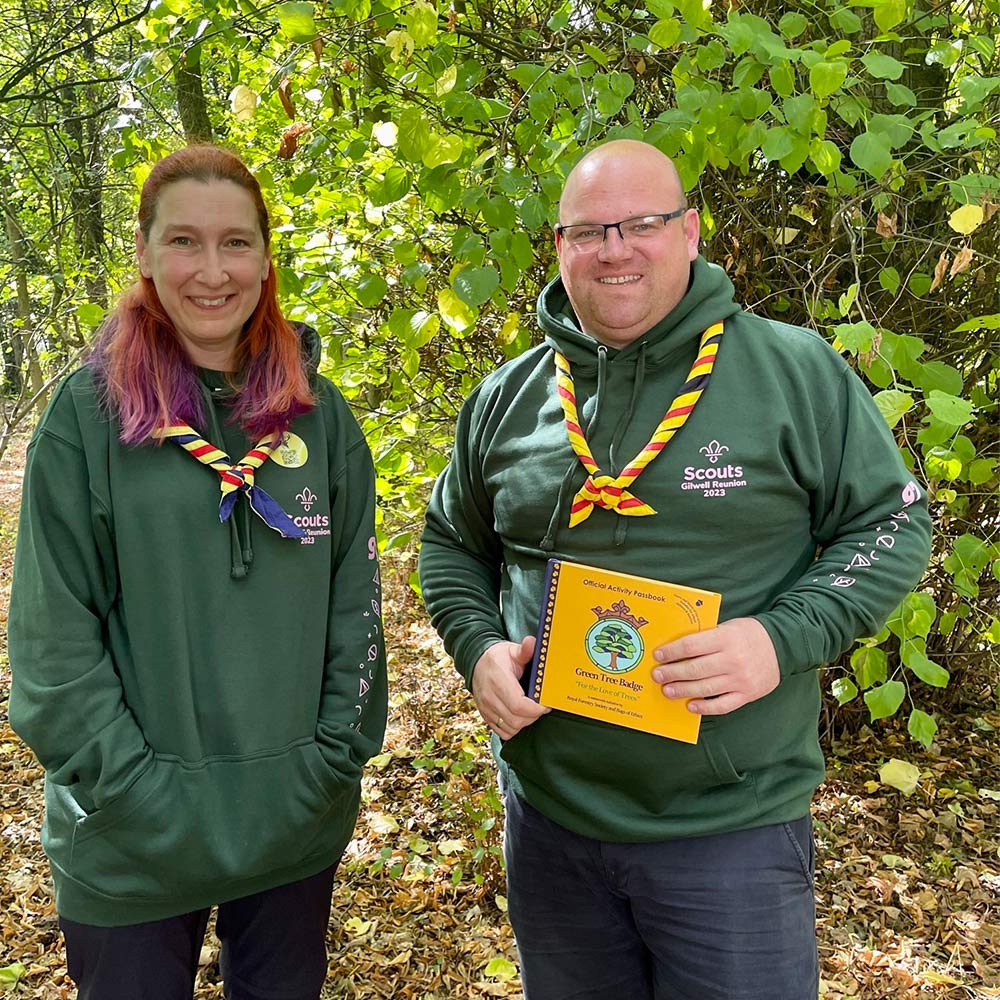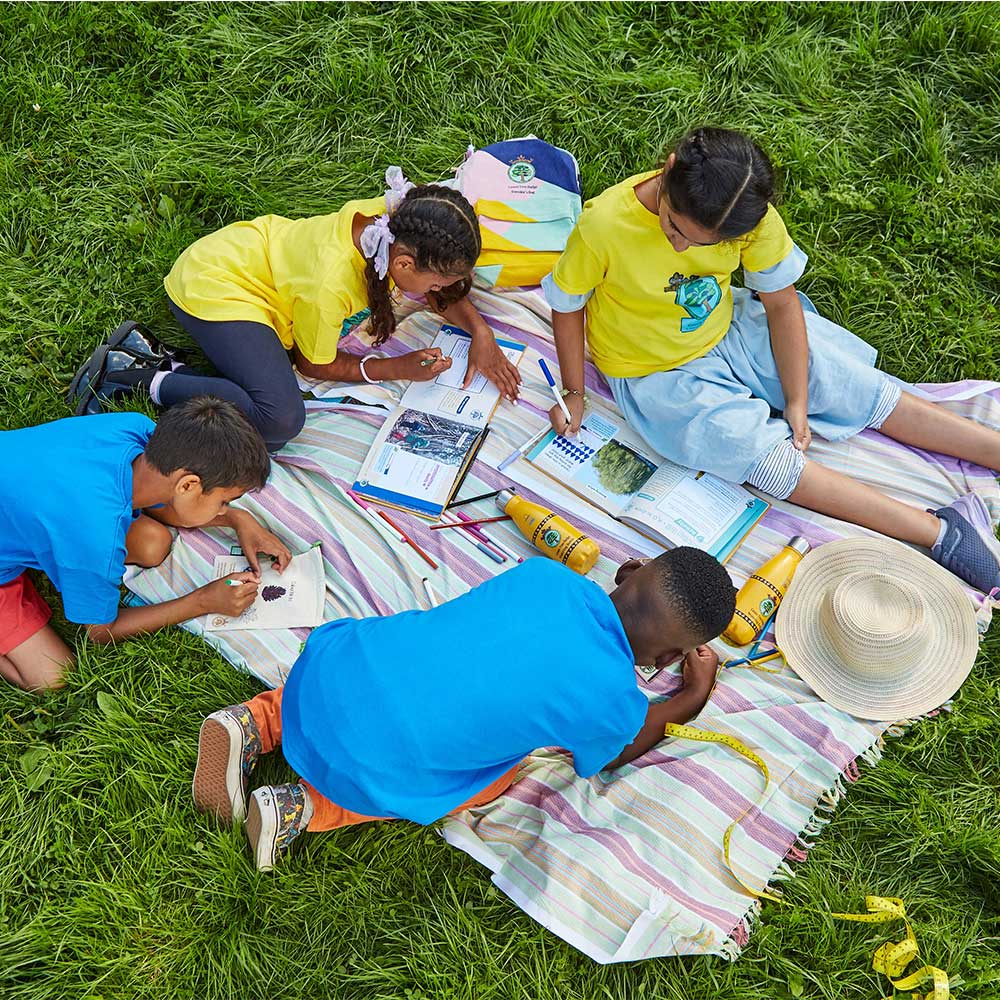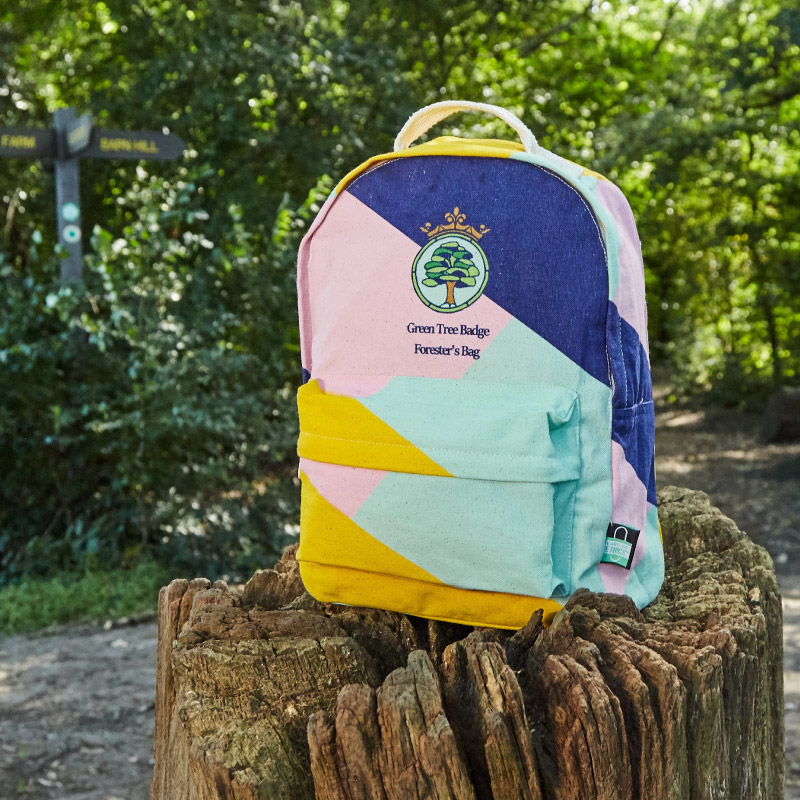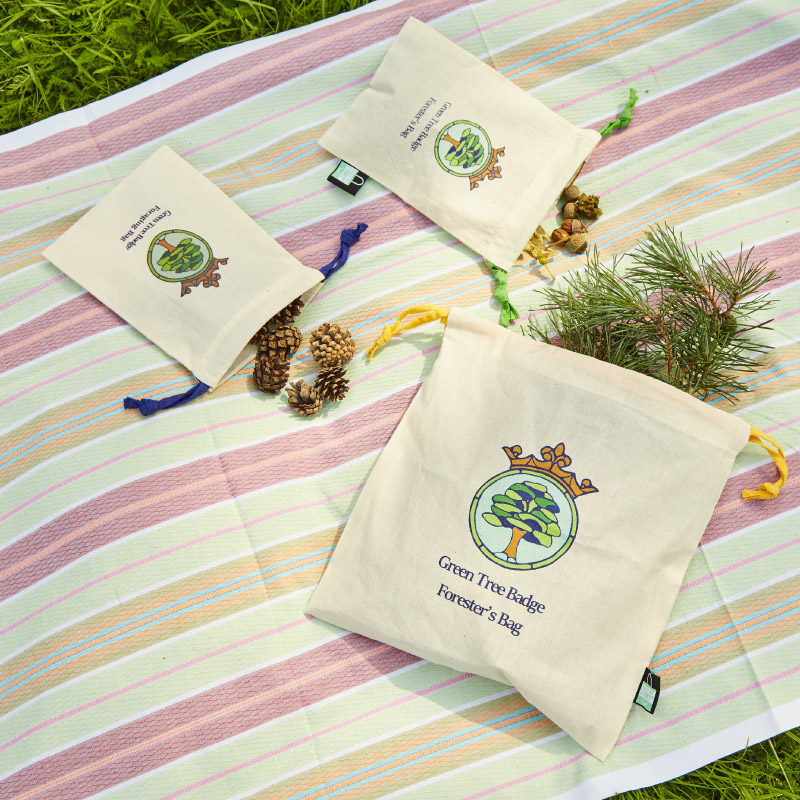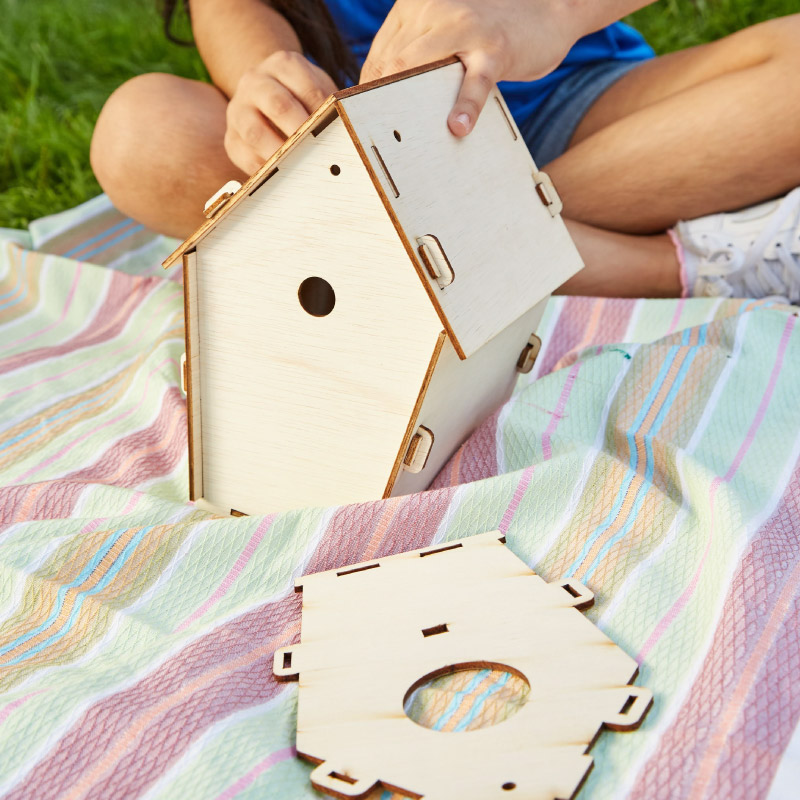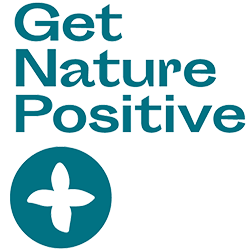Menu
designers
Nurture
Nature
“75 PERCENT of the Earth’s land surface has been SIGNIFICANTLY ALTERED by HUMAN ACTIONS, including 85 percent of wetland areas.”
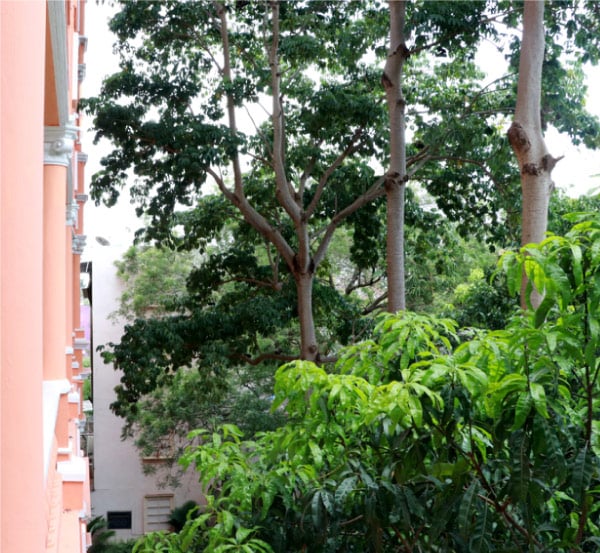
Native plants in our Indian factory include Neem, Mango, Jasmine, Roses, Bougainvillea, Palm, Bamboo & Money Plant
Trees for life
Just as we take resources from nature, we believe it is also our responsibility to also give back to nature in order to protect our natural resources and create a cyclical and sustainable environment. Trees, in particular, are vital to the planet for clean air, natural habitats and their natural power to combat climate change and protect against floods.
Since our business began, 25 years ago, we have planted, protected and conserved over 3.75 million trees through the Queen’s Green Canopy. Now, we’re teaching the next generation how to look after these trees and continue to nurture the natural world through the Green Tree Badge.

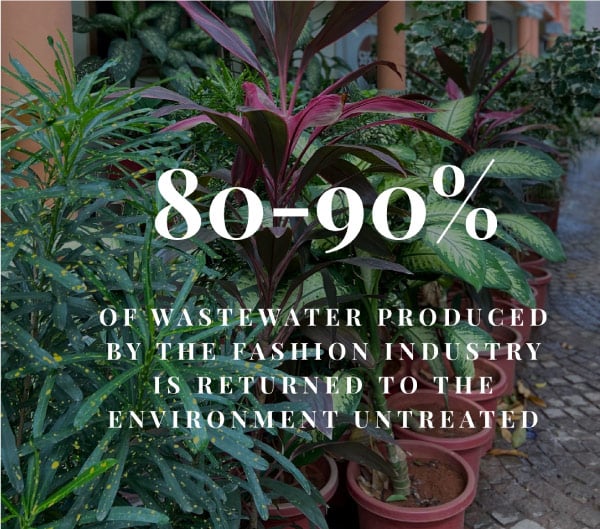
The water Cycle
Water is the very fuel of life, and so it is vital that we each play our part in keeping our waterways clean. In 2015 alone, the fashion industry used 79 billion cubic metres of water. Meanwhile UN estimates suggest that globally, 80-90% of wastewater is returned to the environment untreated. (Forbes, 2020)
We ensure that we conserve and protect water in every way we can – whether that’s through using materials and processes that require less water, or by using certified non-toxic inks. What little waste water we do produce is treated in our factory before being released back into the environment or used to water our plants.

Water conservation

We treat our waste water to ensure it’s safe to release back into the environment

We only use 100%
non-polluting inks
and dyes

Waste water from our factory is used to water our garden

We conserve
water in our production processes
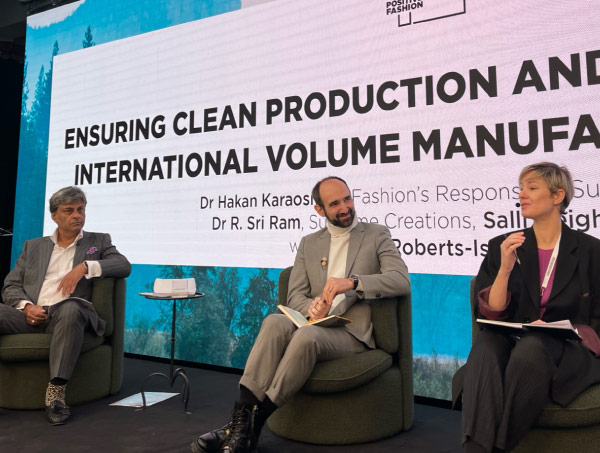
Our founder Dr R. Sri Ram (left) speaking on a panel at the Institute Of Positive Fashion Forum, April 2024
Waste not want not
In order to reduce our impact on nature, we create as little waste as possible and reuse materials wherever we can, like using deadstock to create our bags or offcuts to create handles and straps.
We are constantly innovating with scientific institutions like UCL and investing in our machinery to ensure we are ustilising the latest technology. This enables us to work with natural fabrics such as cotton, canvas, jute, deadstock leathers, faux-leathers, recycled nylons, and rPET to ensure we are able to create an extremely high standard of product in the most sustainable way possible.

Knowledge is Power
Our YouTube Plant Room series delves into some of the most fascinating issues in sustainability and manufacturing. Join our CEO, Smruti, as she talks to industry leaders and renowned experts.
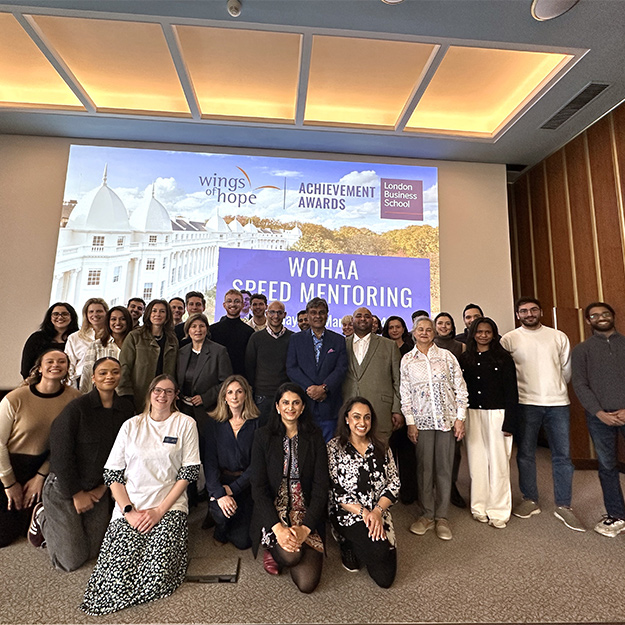
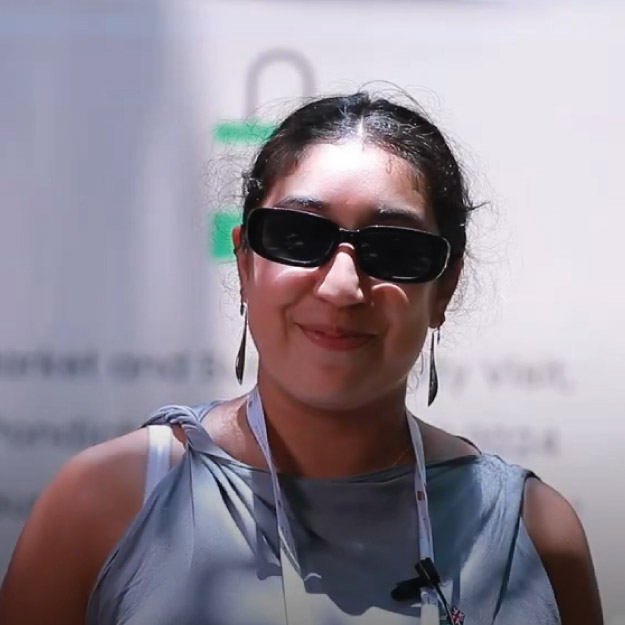
The word I would use is “inspired”...
Shalini Medepalli | British Deputy High Commission
Shalini, Head of Mission at the British Deputy High Commission in Chennai, India, shares her feelings regarding her visit to the Supreme Creations manufacturing facility, Bags of Ethics factory.
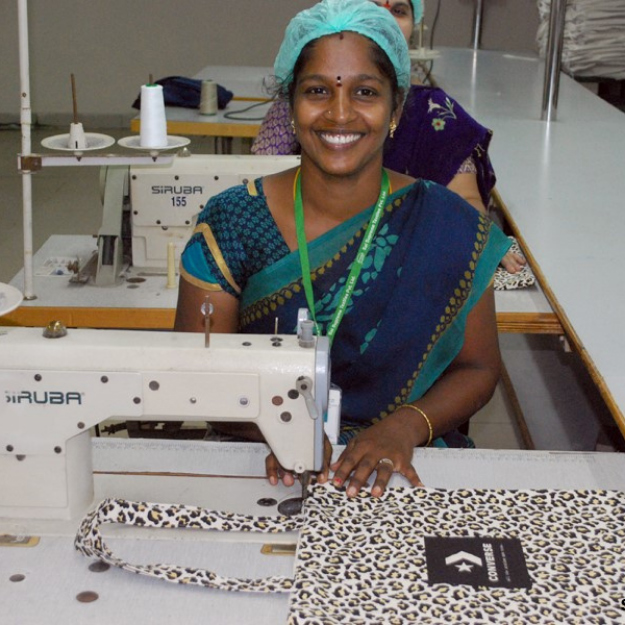
It’s all about being part of a community...
Christopher Di Pietro | Vivienne Westwood Commission
Global Brand Director for Vivienne Westwood, Christopher Di Pietro explains what working with Bags of Ethics means for him.
The word I would use is “inspired”...
Shalini Medepalli | British Deputy High Commission
Shalini, Head of Mission at the British Deputy High Commission in Chennai, India, shares her feelings regarding her visit to the Supreme Creations manufacturing facility, Bags of Ethics factory.
It’s all about being part of a community...
Christopher Di Pietro | Vivienne Westwood
Global Brand Director for Vivienne Westwood, Christopher Di Pietro explains what working with Bags of Ethics means for him.
OUR CHARITY PARTNERS
OUR CHARITY PARTNERS

